Terror-Tied Nonprofit Plans to Launch "Boycott Map" and Make Michigan a "Zionist Free State"
USPCN will launch an inverse boycott map at the People’s Conference for Palestine, highlighting Michigan businesses that shun Israeli products and urging people to shop only at those stores
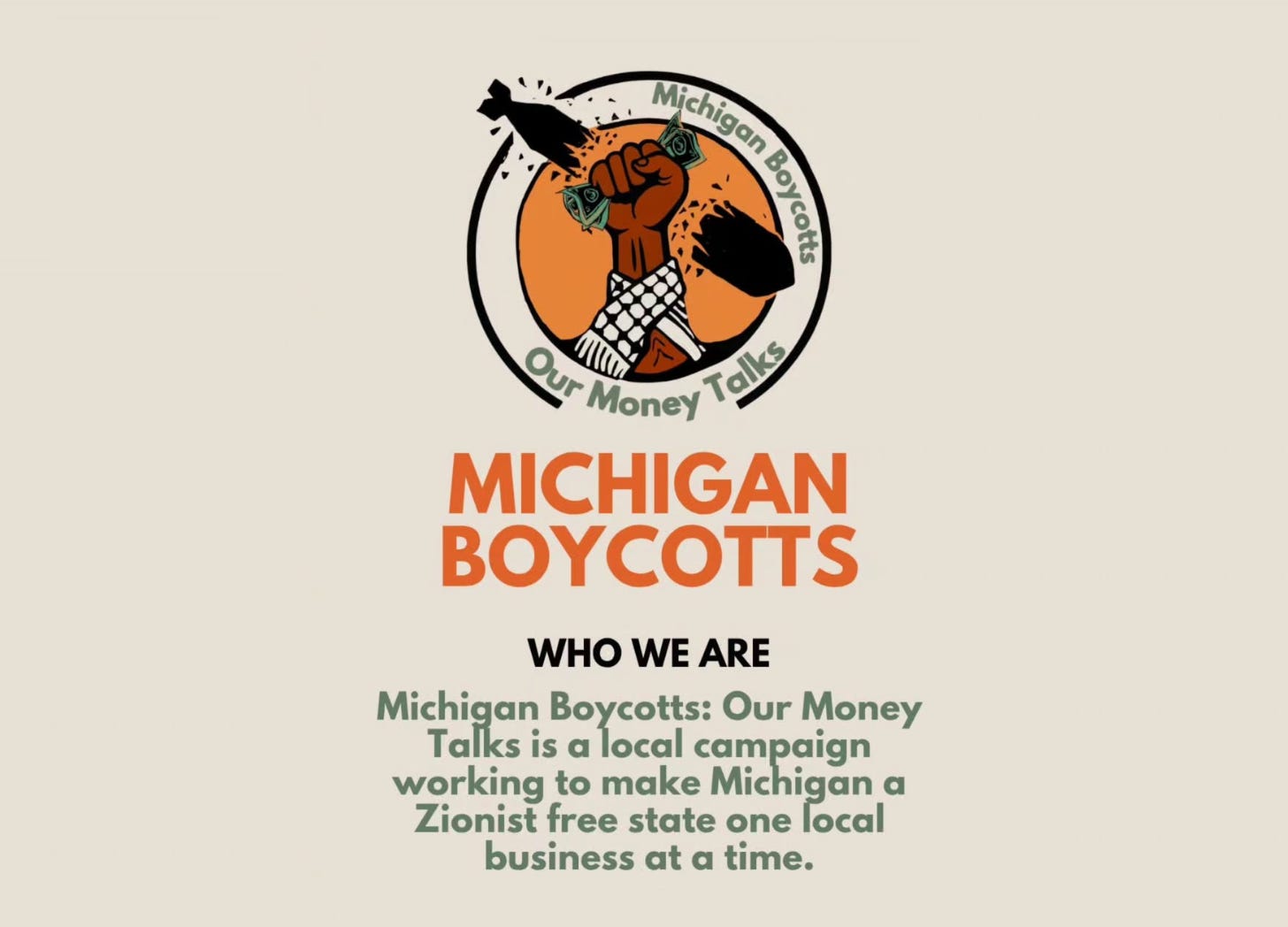
The U.S. Palestinian Community Network (USPCN) has announced plans to publish a map highlighting businesses that boycott “Zionist products” as part of its "Michigan Boycotts" campaign, which is set to be unveiled at the upcoming People's Conference for Palestine in Detroit at the end of August. The organization's stated goal is to make "Michigan a Zionist free state one local business at a time."
Unlike other recent mapping projects, which have listed targets for protest or boycott, the USPCN effort functions as the inverse — highlighting and effectively endorsing businesses that refuse to sell Israeli goods. While the immediate intent is to promote boycotting Israel rather than to identify targets for harassment, the structure and public-facing nature of the map mirrors previous campaigns that have been used to single out Jewish institutions.
Similar mapping projects — such as Massachusetts’ "Mapping Project" and the targeting efforts by groups like Within Our Lifetime in New York City — have been widely criticized for enabling harassment and fostering hostility toward the Jewish community.
USPCN was co-founded by Rasmea Odeh, a former member of the U.S.-designated terror group the Popular Front for the Liberation of Palestine (PFLP). Odeh was convicted in 1970 for her role in a Jerusalem supermarket bombing that killed two Israeli college students. U.S. Immigration and Customs Enforcement (ICE) deported Odeh from the United States in 2017 after it was revealed she had concealed her criminal history on immigration forms.
The USPCN initiative is part of a broader pattern in which anti-Israel organizations employ mapping as a political tool — whether to promote boycotts or to identify targets — that can easily be repurposed for more aggressive, and at times dangerous, campaigns.
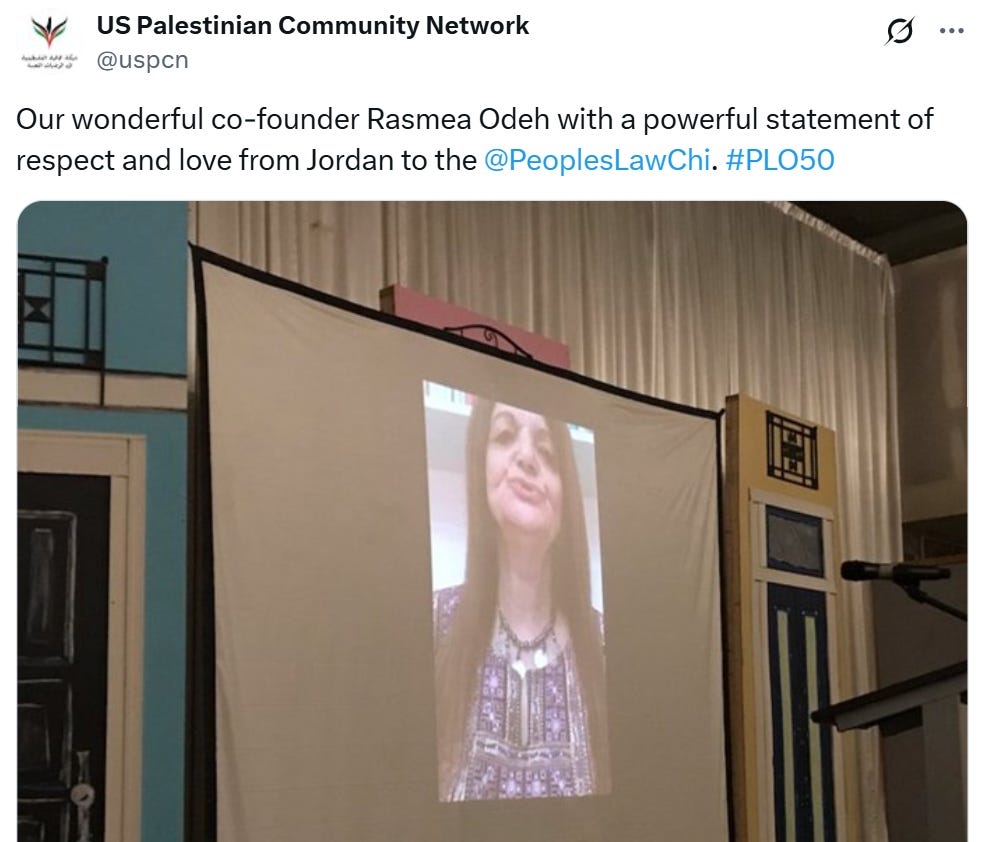
Pattern of Targeting Through Maps
The most notorious contemporary example emerged in Boston in 2022, when an anonymous "Mapping Project" created an interactive map pinpointing the locations of hundreds of Jewish communal organizations, as well as U.S. government law enforcement and military facilities, throughout Massachusetts.
The initiative, which was widely condemned as antisemitic, included calls to “dismantle” and “disrupt” most of Boston's Jewish community. The project also contained a thinly veiled threat: "every entity has an address, every network can be disrupted."
According to a report by the Zachor Legal Institute, there is evidence suggesting the Boston Mapping Project may have had ties to Iranian elements. The Islamic Republic of Iran's state-sponsored, U.S.-sanctioned PressTV published supportive content about the project and called for its replication across all 50 American states.
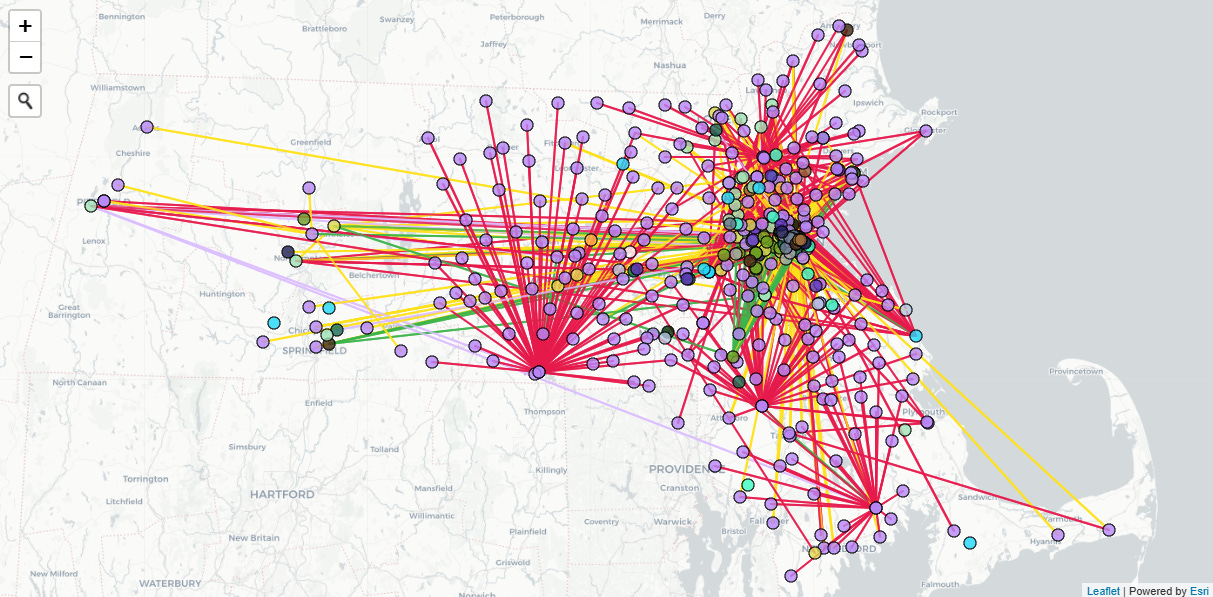
In New York City, the extremist and violent group Within Our Lifetime has employed similar tactics, posting maps on Instagram detailing locations of Jewish organizations and urging followers to "KNOW YOUR ENEMY." These posts, which have since been deleted, accused the organizations of having "blood on their hands" and urged protests outside their locations.
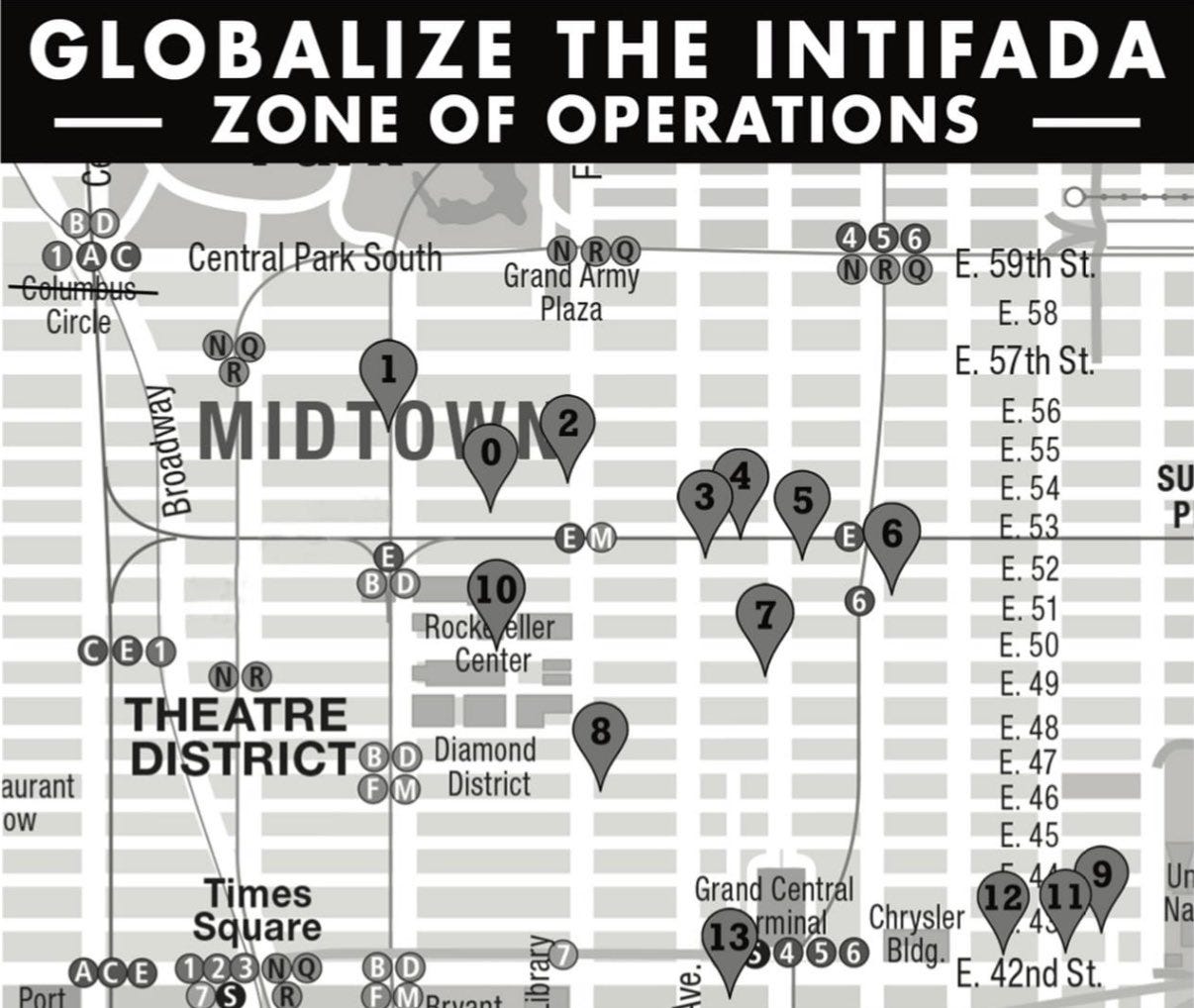
Recent Escalation in Targeting
The pattern has extended beyond organizational mapping to direct threats against Jewish students. Just last week, Iman Abdul, a 27-year-old former youth organizer for U.S. House Representative Alexandria Ocasio-Cortez, was arrested on charges of making terroristic threats after posting the location of Leon M. Goldstein High School for the Sciences in Brooklyn on social media.
Abdul's post included the school's Google Maps location with a caption reading: "If anyone needs a public school in NYC to attack for whatever reason ... Lexus driving Israhell loving Zionisits all attend here." The post specifically referenced the school's students and their participation in Birthright, a program offering free trips to Israel for young Jewish adults.
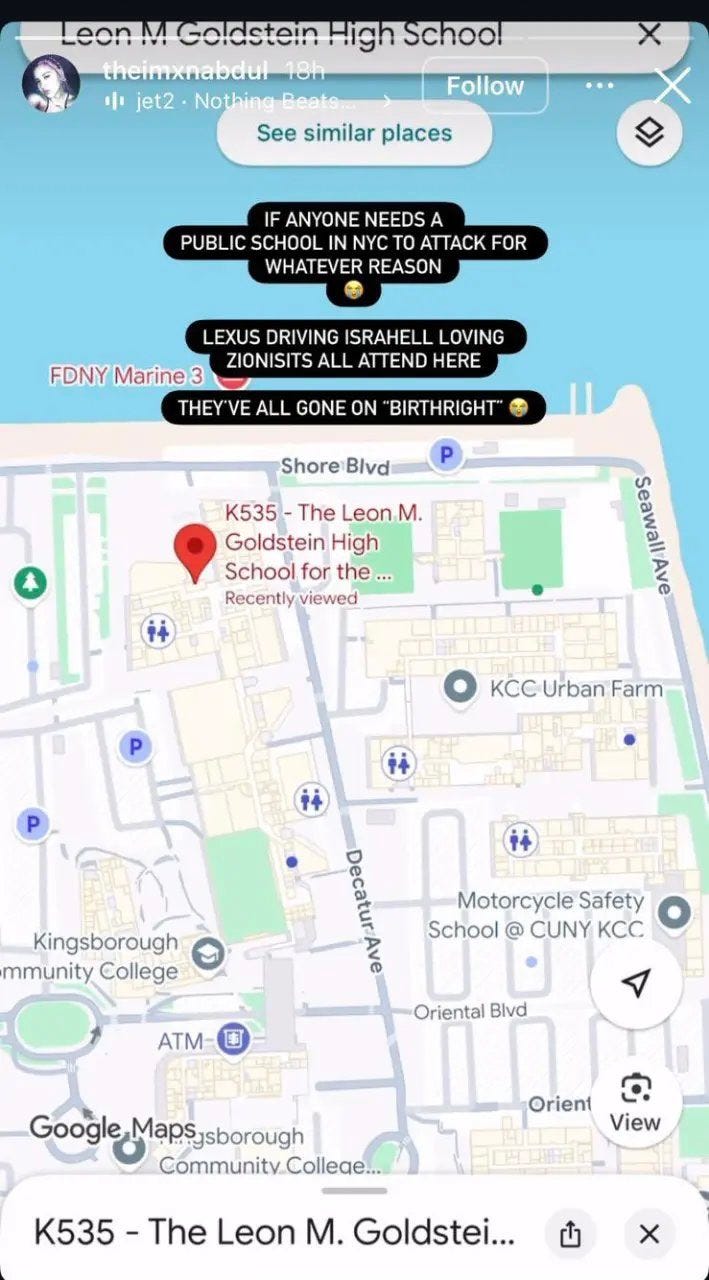
Historical Context and Concerns
Jewish advocacy groups have expressed alarm about the escalating use of mapping efforts to target Jewish institutions and individuals. The tactics echo historical patterns of identifying, isolating, and even targeting Jewish communities, raising concerns about potential violence.
"This whole project is reminiscent of a dangerous antisemitic pattern of activity known from antiquity through the horrors of the 20th century: a pattern which has led to violence against Jews and their institutions," Israeli Foreign Ministry spokesperson Lior Haiat stated regarding the Massachusetts Mapping Project.
The concern extends beyond symbolic targeting. Former Israeli counter-terrorism advisor and head of the Middle East Media and Research Institute (MEMRI) Yigal Carmon revealed that intelligence agencies have previously intercepted similar targeting lists, including a Hezbollah "kill list" from the 1990s containing 600 addresses of Israeli official representations, Jewish centers, and synagogues in Germany.
While the USPCN’s current Michigan campaign is structured as an “inverse boycott” — promoting businesses that refuse to sell Israeli goods — such public mapping frameworks can easily be adapted or repurposed into more aggressive targeting lists, as history repeatedly shows.



This is horrendous